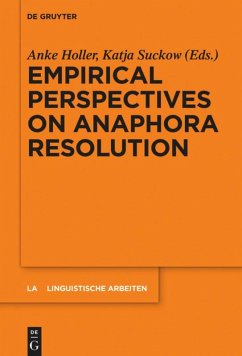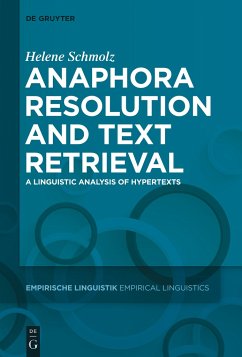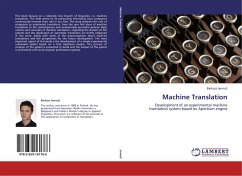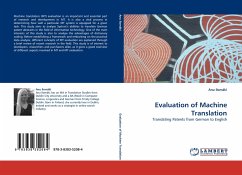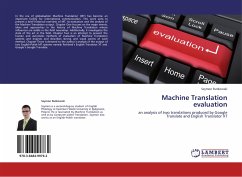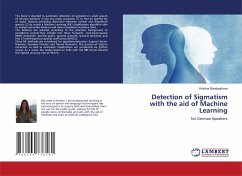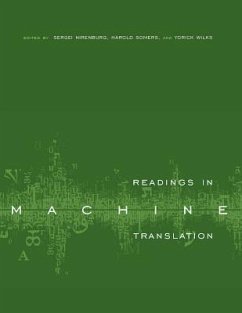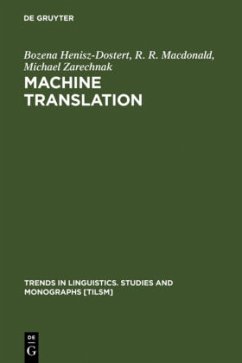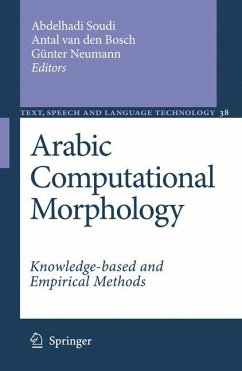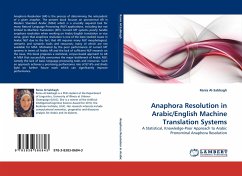
Anaphora Resolution in Arabic/English Machine Translation Systems
A Statistical, Knowledge-Poor Approach to Arabic Pronominal Anaphora Resolution
Versandkostenfrei!
Versandfertig in 6-10 Tagen
32,99 €
inkl. MwSt.

PAYBACK Punkte
16 °P sammeln!
Anaphora Resolution (AR) is the process of determining the antecedent of a given anaphor. The present book focuses on pronominal AR in Modern Standard Arabic (MSA) which is a crucially required task for many Natural Language Processing (NLP) applications, including but not limited to Machine Translation (MT). Current MT systems poorly handle anaphora resolution when working on Arabic-English translation or vice versa, given that anaphora resolution is one of the least studied issues in Arabic NLP due to the fact that AR requires many NLP morphological, semantic and syntactic tools and resource...
Anaphora Resolution (AR) is the process of determining the antecedent of a given anaphor. The present book focuses on pronominal AR in Modern Standard Arabic (MSA) which is a crucially required task for many Natural Language Processing (NLP) applications, including but not limited to Machine Translation (MT). Current MT systems poorly handle anaphora resolution when working on Arabic-English translation or vice versa, given that anaphora resolution is one of the least studied issues in Arabic NLP due to the fact that AR requires many NLP morphological, semantic and syntactic tools and resources; many of which are not available for MSA. Motivated by the poor performance of current MT systems in terms of Arabic AR and the lack of sufficient NLP research on the issue, this book proposes a statistical, corpus-based approach to AR in MSA that successfully overcomes the major bottleneck of Arabic NLP, namely the lack of basic language processing tools and resources. Such an approach achieves a promising performance rate of 87.6% and sheds light on further future work which can significantly improve performance.




